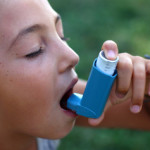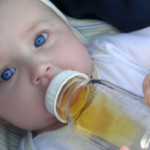"50 Years Later: Rachel Carson Is Still Wrong," by Angela Logomasini Back in 1996, the Competitive Enterprise Institute’s Jonathan Tolman authored an article entitled “Rachel Was Wrong,” in which he explained why biologist Rachel Carson mistakenly condemned chemicals — and pesticides in particular. This month marks the 50th anniversary of her in her 1962 book, Silent Spring, which history shows is, in fact, still wrong. Read the full story on OpenMarket.org … [Read more...]
Researchers Find Phthalates in Toys Safe
"Study Finds Diisononyl Phthalate Safe For Toys," by Angela Logomasini While news sources, greens, and U.S. lawmakers hype the risks about children’s exposure to the chemicals found in a host of plastic products from school supplies to toys, the government of Australia has released a comprehensive scientific review on one of the alleged culprits: DINP (diisononyl phthalate). DINP is One of nine phthalates used to make soft and flexible plastics used in a variety of valuable products — from … [Read more...]
Organic Food Not Really ‘Special’
"To be Organic or not to be Organic, Why ask the question?" by Sterling Burnett For many years, environmentalists – many of whom seem to hate the very synthetic chemicals that make modern society, high standards of living and the modern “environmental chic” lifestyle possible – have teamed with a small but growing sub-segment of farmers to push for policies that treat ‘organic’ agricultural products as if they were special. Read the full article on the NCPA blog. … [Read more...]
EPA Bureaucracy and the Economy
"Manufactured Fear Drives Needless Regulations," by Julie Gunlock As sure as the sun rises in the morning, Americans can count on their televisions and newspapers to brim with daily reports of all the dangerous products lurking in their homes. Women in particular are told commonplace items like shampoo, deodorant, plastic food containers, household disinfectants, children’s toys, baby bottles, and garden hoses threaten them and their families. Even living room furniture is now cast as a … [Read more...]
No Need to Fear Pesticides
"Are Lower Pesticide Residues a Good Reason to Buy Organic? Probably Not," by Christie Wilcox. A lot of organic supporters are up in arms about the recent Stanford study that found no nutritional benefit to organic foods. Stanford missed the point, they say—it’s not about what organic foods have in them, it’s what they don’t. After all, avoidance of pesticide residues is the #1 reason why people buy organic foods. Yes, conventional foods have more synthetic pesticide residues than organic … [Read more...]
Junk Science, BPA, and Obesity
"The BPA Wars: Junk Science and Junk Journalism," by Alan Caruba On Tuesday, September 18, FoxNews.com posted an article by Alex Crees, a health news reporter, “Chemical BPA linked to obesity in children, teens.” If Ms. Crees had done any research to verify the facts she recounted in “a new study”, she would have known it was yet another bogus effort to correlate eating food with BPA. Bisphenol-A, more commonly called BPA, is a chemical that has been in wide, safe use for over 50 years. It is … [Read more...]
Study Addresses Pesticides & Honeybees
"Pesticides not yet Proven Guilty in Bee Dieoffs: Study," by the University of Exeter and World Science staff. Contrary to some previous studies, crop pesticides are unlikely to cause devastating declines in honeybee populations, the authors of new research say. Writing in the Sept. 20 issue of the journal Science, U.K. scientists from the University of Exeter and Food and Environment Agency said more work is needed to predict the impact of widely-used … [Read more...]
Today’s Pesticides Safer than You Think
"Pesticides: Probably Less Scary Than You Imagine," By Steve Savage The word "pesticide" conjures up negative, scary images. These images come from old organophosphate insecticides of the 1960s that killed fish and birds and caused farm worker illness. These are sorely outdated images. What most people don't know is how much safer the new generations of pesticides are. In fact, scores of old materials have been withdrawn from the market or banned long ago. The new products are mostly … [Read more...]
BPA & Obesity
"Blame Game Alert: Now It's the Food Wrapper!" by Julie Gunlock. Boy, it sure is hard to keep track of all these supposed causes of obesity: happy meals, school lunches, video games, television commercials, cartoons, lack of community parks, violent neighborhoods, soda, fat, salt, sugar, ice cream, milk, beef, fast food, energy drinks, sugary cereals... Now, it's chemicals. The latest screaming headline blames ... Read the full article on the IWF Blog. … [Read more...]
ACSH’s Ross Brings Perspective to Flame Retardant Debate
"Dr. Ross Debates Flame Retardants with NPR Guests," by American Council on Science and Health. As we reported just last week, fear of flame retardants is back in the news once more. While we always do our best to explain why the various flame retardants found in furniture do not, in fact, pose a toxic threat, just yesterday, ACSH’s Dr. Gilbert Ross took on the issue in a more public — and resistant — forum: National Public Radio’s Diane Rehm Show. We encourage you to head over to ... Read the … [Read more...]
Campbell’s Soup, BPA, and Corrupt Science
"Campbell's Big Fat Green BPA Lie -- and the Sustainability Activists that Enabled It," by Jon Entine. How did the world’s largest soup company go from pariah to paragon over its use of the controversial chemical bisphenol A? It lied, and credulous NGOs and chemophobic campaigners played willing patsies. Here’s an ugly story of what happens when ideology corrupts science. Read the full story on Forbes.com. … [Read more...]
Exposé on Campbell’s Soup and BPA
"Campbell’s Promises More Than It Can Deliver," by American Council on Science and Health. And while we’re on the topic of BPA, we’d like to applaud ACSH colleague Jon Entine’s recent exposé of the disconnect between public relations and scientific evidence that has resulted from uninformed public outcry over the chemical. “How did the world’s largest soup company go from pariah to paragon over its use of the controversial chemical bisphenol A?” Entine asks in his investigative piece for … [Read more...]
Meaningless BPA Study on Obesity
"BPA-Obesity Study Virtually Meaningless," by American Council on Science and Health. In April of this year, the FDA rejected a petition by the Natural Resources Defense Council to ban the use of bisphenol A (BPA) in food packaging. We at ACSH applauded the agency’s decision, which was based on a research review finding that normal levels of exposure to this chemical — used to protect canned foods from contamination and spoiling — do not pose a health risk to humans. So we were more than a … [Read more...]
Environmental Left At Odds with Science
"Great New Book on Science and the Environment," by Todd Meyers. One of the consistent issues we address here is the gap between the science and Washington's environmental policy - even as policymakers and politicians claim to be following the science. Now there is a great book from the editor of Real Clear Science highlighting the many ways left-wing environmentalists ignore the science when it is inconvenient to their ideology. "Science Left Behind," by Alex Berezow and Hank Campbell … [Read more...]
Vegetarians, Organic Food, and Science
"Vegetarianism: The Future Of Food For Poor People," by Hank Campbell. What would the world look like with 7 billion people and no way to scientifically have created better ways of producing food? A lot of poor vegetarians, that's what. And only rich people eating meat. Organic food corporations love to claim that their process is 'sustainable'. Vegetarians love to claim that meat is both unethical and bad for the planet. It makes them happy partners ... as long as science is ignored. Read … [Read more...]
Jeff Stier Discusses Bloomberg Failure to Address West Nile
"Jeff Stier Discusses Mayor Bloomberg's Failure to Lead in the Fight Against West Nile Virus in NYC," by David Almasi. On the September 12, 2012 edition of “Good Day New York” on Fox5-New York, National Center Risk Analysis Division director Jeff Stier says the Bloomberg Administration’s response to the threat of West Nile virus is “too little, too late… We need to do more.” Jeff says Mayor Bloomberg and his staff were too fixated on their own nanny-state agenda of regulating behavior and too … [Read more...]
Flame Retardants in the News
"More Smoke about Flame Retardants," by Roya Heydari. ACSH staffers couldn’t help but shake their heads in disappointment this morning at a recent New York Times article questioning the safety of our furniture. The piece, entitled “How Dangerous is Your Couch,” is an extremely long recounting of Dr. Arlene Blum’s crusade against the ‘toxic chemicals’ found in furniture. Dr. Blum, co-author of the journal article that spearheaded the removal of so-called toxic flame retardants from children’s … [Read more...]
Risks from Pesticide Residue Negligible
"Do You Really Need To Buy Organic To Avoid Pesticide Residues?" by Steve Savage. Last week, a meta-analysis from a highly credible academic source (Stanford University, its medical school and nearby institutions), raised serious questions about the often-touted nutritional advantage of organic food. They digested the contents of 237 peer reviewed articles comparing organic and conventional foods and diets. They concluded that "the published literature lacks strong evidence that organic foods … [Read more...]
Questioning USDA Organic Certification
"USDA Employs Lax Oversight of Organic Farms," by Mischa Popoff and Jay Lehr The leaders of the American organic food industry, sitting in their perches in offices far removed from the soil and toil of actual farming, sustain an unfounded attack against conventional, nonorganic food, charging that it is impure and hardly nutritious. We all know that purity and nutrition are readily provable through scientific analysis, but here we have the activist leadership of the multibillion-dollar organic … [Read more...]
Debate on Organics is Over
"Debate on Organics is Over: The National Center was Right!" by David W. Almasi. Two landmark reports were issued this week that cast doubt on the health and safety benefits used to cheerlead for organic foods over conventional foods and the means of procuring them. Since 2000, the National Center has urged people to eschew the hype over organic grandstanding. A newly-released study by Stanford University researchers — reportedly the largest study of its kind — finds that there are no real … [Read more...]
Jon Entine Kills “Killer-Backpack” Claims
"Anti-Chemical Alarmism Spreads to Your School -- Dora the Explorer Will Kill Your Kid!" by Jon Entine. Today’s toxic headline: a plastic gun is pointed at your children and it looks like SpongeBob, Hello Kitty and Dora the Explorer. Campaigning NGOs and many journalists share a not-so-attractive sensibility: they are often uncomfortable with complexity. Dividing the world, and prickly science policy issues, into black and white makes for exciting narratives. Unfortunately it’s invariably … [Read more...]
Organic Foods No Better than Conventional
"Organic Foods Provide no Health Bonus," by Roya Heydari For years now, the organic food industry has staked its business on the idea that “organic” means “healthier.” And for just as long, ACSH has been saying that the claim is false: There are no nutritional or safety differences between foods produced according to organic standards and those produced by means of conventional agricultural methods. Now, a study appearing in the current issue of Annals of Internal Medicine provides evidence … [Read more...]
Bloomberg Refuses to Spray to Control Deadly West Nile Virus
"City To Mosquitoes: Don't Drop Dead," by Jeff Stier. In an op-ed in today’s New York Post, I explain why Mayor Bloomberg and his nanny-state health commissioner are putting New Yorkers at risk by failing to stand up to environmental activists who oppose the responsible use of low-concentration pesticides to kill disease-spreading mosquitoes: "As the city headed into the Labor Day weekend, six new West Nile cases were reported — bringing Gotham’s total to 14 (with one fatality) for 2012, up … [Read more...]
Organic Food Not Safer
"Organics: No Healthier?," by Julie Gunlock. A new study says organic meat and produce is no healthier than conventionally grown products. hile this is bad news for the organic industry which promotes the idea that organic food is healthier than conventionally produced food, this is great news for the average shopper who wants to provide healthy meals for their families without spending a fortune. Armed with this information, moms might more easily choose the less expensive item and that’s a … [Read more...]
Questionable Claims Regarding Chemicals and Sperm Counts
"No evidence for declining sperm quality, by American Council on Science and Health." Is sperm quality and quantity on the decline? That’s the focus of a recent article which investigates the issue by citing a number of studies over the years that either support or refute the notion that male fertility is decreasing. Though some of the evidence is anecdotal — such as reports from Israeli sperm banks on increases in low quality donations — other research that analyzed eight years worth of … [Read more...]
BPA Bans May Increase Risk of Food-Borne Illnesses
"Green Calls for BPA Bans Are Dangerous," by Angela Logomasini This past July the Food and Drug Administration (FDA) banned the use of the chemical Bisphenol A (BPA) to make baby bottles and sippy cups. Environmental activists would like you to believe the move was designed to protect public health and that more bans are necessary. But the greens are wrong on both counts -- and their advice could imperil public health. Read the full story on Real Clear Policy. … [Read more...]
EPA and Clean Air Cases
"Obama’s EPA before the bar: People Two, EPA Zero," By Sterling Burnett The EPA continues its terrible record in the federal courts this year. On March 27, I noted a series of setbacks that the EPA suffered in the courts — instances where EPA zealotry led to insupportable overreach on the agency’s part. For the EPA the hits keep on coming. In August alone two more appeals courts have ruled against the EPA. On August 13, the U.S. Court of Appeals for the Fifth Circuit rejected the EPA’s … [Read more...]
Asthma, Air Quality, and Environmental Activism
"Green Games with Asthma Distract from Real Solutions," by Todd Myers The Seattle Times recently ran an excellent piece on an effort to prevent asthma in children and reduce attacks for those already living with asthma. The article, "Program uses home visits to help asthmatic kids breathe easier," highlights efforts to reduce the incidence of asthma among children by reducing the risk factors in homes. The article tells the story of one boy whose symptoms have disappeared... Read the full … [Read more...]
Obama Regulatory Reform Falls Short
"Regulatory Reform? Really?" by Jeff Stier In a piece in today’s Townhall.com, I explain how the administration’s regulatory record doesn’t match it’s reform rhetoric. "The Obama Administration would like to have us believe that his agencies have struck a reasonable approach to using its regulatory powers. In his Executive Order on regulatory reform last year, the president proclaimed (in part), “Our regulatory system must protect public health, welfare, safety and our environment while … [Read more...]
“Safe” Chemicals Act
"Jessica Alba, Please Don't Be a Crony," by Hadley Heath. Jessica Alba - do they come any hotter? She's a beautiful woman, a mother of two, and a businesswoman. Self Magazine just made her their "Women Doing Good Honoree" and praised her lobbying efforts on Capitol Hill. Alba is standing up for safe homes, asking Congress to restrict the amount of certain chemicals that can be in household goods and products. So what's not to love? Well, the legislation that Alba supports, the "Safe … [Read more...]
Toxic Misinformation on School Supplies
"Killer Backpacks and Other Nonsense," by Julie Gunlock. As kids get ready to start a new year of school, parents are being advised to warn their children about the dangers of…school supplies? Yup! Forget about those trendy issues from last year—like bullying, the need to respect trans-gender preschoolers, drug abuse, and teen pregnancy; this year, hand wringing environmental advocates are shedding light on the great danger posed by unregulated three-ring binders, lunch boxes and back … [Read more...]
Scientific Integrity Lacking at New York Times
"Scientific Illiteracy Is An Attack On Science Integrity," by Hank Campbell. New York Times opinion columnist Nick Kristof is at it again. Despite pleas, even from people inclined to like the New York Times and people inclined to side with him politically, he refuses to talk about science a little less or at least learn a little more. Read the full article on Science 2.0. … [Read more...]
Hyped Risks About Phthalates in School Supplies
"Activist Group Scares Parents About 'Toxic' School Supplies," by American Council on Science and Heath. As the summer season draws to a close, students and parents are making their annual back-to-school shopping trips, stocking up on pencils, notebooks, and backpacks. But before you pick up that Dora the Explorer backpack, the Center for Health, Environment & Justice (CHEJ) wants the public to know that the popular Disney, Spiderman, and Dora branded children’s products (among others) are … [Read more...]
Nick Kristof and BPA Science
"Why Nick Kristof's Scientific Illiteracy Threatens Us All," by Trevor Butterworth. Last May, Deborah Blum, a Pulitzer-winning science writer and a professor of journalism at the University of Wisconsin, published a column pleading with the New York Times’ opinion columnist Nick Kristof to stop writing about chemical risk: "if we, as journalists, are going to demand meticulous standards for the study and oversight of chemical compounds then we should try to be meticulous ourselves in making … [Read more...]
Consumer Product Safety Commissions Ignores White House
"Democratic Commissioners Marching to a Different Drummer," by Nancy Nord. When the president issues an executive order, Cabinet-level departments get in line with administration policy. Though independent regulatory commissions (technically not part of the administration) are not required to follow executive orders, they usually try. After all, the agencies’ leaders are presidential appointees, and executive policy should be consistent across the executive branch. Given this, it is curious … [Read more...]
Chemicals in the Garden
"Chemical Free Dirt (for the Fairytale Garden)," by Deborah Blum. Earlier this week, the magazine Mother Jones posted a helpful little story on the question of whether the health-conscious consumer should wash organic produce. Was it necessary, the author pondered, after all “how bad could a little chemical-free dirt really be?” I had a ready answer to that question: “Not bad at all,” I shouted at the computer screen. “since it doesn’t exist!” The howl brought my teenage son to the office … [Read more...]
Public Health Costs of Regulation
"Regulation And Government Science Cost Us More Than Dollars," By Angela Logomasini Today, the Independent Women’s Forum blog highlights a new NERA Economic Consulting study (produced for Manufacturers Alliance for Productivity and Innovation) on the costs of regulation. IWF’s Emily Wismer notes: "According to the report, a major federal regulation is one for which compliance costs more than $100 million per year ... Regulations are meant to keep us safe and should increase the quality and … [Read more...]
Science in Government and the Private Sector
"There Are A Thousand Ways To Do An Experiment Wrong," by Henry Miller and Jeff Stier on Forbes.com The 18th century philosopher and economist Adam Smith observed, "People of the same trade seldom meet together, even for merriment and diversion, but the conversation ends in a conspiracy against the public, or in some contrivance to raise prices." That view is one justification for giving federal agencies so much money, control and discretion over commerce and other aspects of our lives. And … [Read more...]
Improving Scientific Research
"A Reality Check for Scientific Studies? by American Council on Science and Health." Scientific investigation relies on the publication of peer-reviewed studies to communicate advances in research, including medical research. Over the course of the last decade, however, several important paradigms have been found baseless. Now, a new project, the “Reproducibility Initiative,” announced last Tuesday by the company Science Exchange, will provide researchers with an opportunity to replicate their … [Read more...]
Pesticide Spraying in Dallas Warranted
"West Nile Outbreak Warrants Pest Control--Pesticide Spraying Included," by Angela Logomasini. This year, Texas is experiencing its worst outbreak of the mosquito-transmitted West Nile virus ever. Fortunately, most people who get it won't suffer the severe symptoms--some won't even notice they have been infected, and others will experience a range of flu-like symptoms. But the bad news is, some people will suffer severe, painful and even a debilitating illness with permanent neurological … [Read more...]
West Nile Outbreak in Texas
"West Nile Virus Hits Texas Hardest of All," by American Council on Science and Health. West Nile virus has reached a state of emergency in Dallas County, Texas this summer. Thus far, the area has seen 200 cases of human infection and 10 deaths from the mosquito-borne virus now endemic to the U.S. And while the infection rate is the worst in Texas, the CDC reports 693 cases of West Nile virus nationwide. No other state besides Louisiana, however, reported more than one death from the disease. … [Read more...]
Johnson & Johnson Goes “Beyond Science” to be Green
"Johnson & Johnson Kowtows to Chemophobic Activists," by American Council on Science and Health We were more than a bit dismayed to learn that health care and consumer product giant Johnson & Johnson (J&J) plans on removing a number of allegedly “toxic” chemicals from its line of consumer products. J&J, which also owns popular skin care brands such as Neutrogena, Aveeno, and Clean & Clear, has pledged to remove certain chemicals from its baby products by the end of 2013 and reformulate all … [Read more...]
BPA and Heart Disease Study
"Lastest Junk Science on BPA And Heart Disease," By Angela Logomasini Earlier this week, we learned from the wonderful world of junk science that eating egg yolks is as dangerous as smoking. Now we learn that eating canned vegetables will harden your arteries! These stories are hard to believe for good reasons, but they sure do make catchy headlines for news sites and green bloggers. Read the full article on OpenMarket.org. … [Read more...]
Chicago Tribune Series on Flame Retardants Under Fire
"Time to Extinguish Flame Retardant Hype," by Angela Logomasini Flame retardants are making headlines these days thanks to an “exposé” — more properly characterized as an unsubstantiated smear campaign — published as a series of articles in the Chicago Tribune this past spring. The effort has helped Senator Frank Lautenberg (D-N.J.) build the case for his anti-chemical legislation, which he calls the “Safe Chemicals Act.” Supposedly, he and his journalist allies at the Chicago Tribune know … [Read more...]
BPA Bans and Media Hype
"The Media’s War on Business – and Science – Gets Personal," by Lisa De Pasquale. The media only asserts its role as watchdog when it reiterates stereotypes they’ve created. Meanwhile, they ignore that the small number of studies that claim to find enigmatic “links” to BPA consumption and a host of problems also profit from their findings. It’s to researchers’ advantage to report a link, no matter how miniscule, so their funding doesn’t dry up. Yet we don’t see special reports from the … [Read more...]
EPA Over-Estimates on Health Benefits of Regulation
"House Testimony: EPA Grossly Overstates Economic Benefits of Regulation," By James Taylor. The U.S. Environmental Protection Agency is grossly overstating the economic benefits of its various environmental restrictions, environmental expert Richard Trzupek told the Energy and Environment Subcommittee of the House Committee on Science, Space, and Technology. Trzupek, a chemist and environmental consultant, told the House subcommittee in June 6 written testimony that EPA routinely claims … [Read more...]
Testing for Organic Food Certification
"It’s Time to Start Testing Organic Food " by Jay Lehr. There can be no mistaking the fact that modern agriculture is under attack. Gone are the days of saving the whales or attacking logging companies for cutting down trees. The latest environmental “bad guy” is the farmer who grows the food you feed your family. This attack against farming has occurred mainly in the form of sustained and very negative public-relations campaigns, but it has also made its way into the nation’s courtrooms. It … [Read more...]
California Green Chemistry Regulations
"Bureaucratic Green Chemistry," by Angela Logomasini. California bureaucrats recently released their proposed regulations implementing the state’s 2009-passed “green chemistry” law. The law supposedly will make life safer for California residents by ensuring that all products are designed to be “green.” But it is destined to fail — costing consumers without delivering benefits — because policymakers foolishly assume that bureaucrats are better situated than business to decide what makes a … [Read more...]
BPA Packaging is Safe
"BPA is Safe in Food Contact Materials," By Dr. Mitchell A. Cheeseman. The recent opinion piece by Dr. Laura Vandenberg (August 5) with its staggeringly one-sided presentation of “facts” represents all that is wrong with the debate over bisphenol A, or BPA. Instead of an objective consideration of the science, Dr. Vandenberg distorts information about BPA. Dr. Vandenberg’s reference of the “Chapel Hill” study conducted five years ago, conveniently neglects to mention that, since that study in … [Read more...]
Silent Spring at 50
"New Book Documents the Flaws in Environmental ‘Classic,’ Silent Spring,"by Jay Lehr. I have been writing about Rachel Carson’s infamous book Silent Spring for much of the 50 years since its publication. With ten years of environmental education behind me when the book was published in 1962, it was immediately obvious that this was not a work of science but rather a compilation of anecdotal data and selective scientific studies to make points that fit the author’s philosophy of how the earth … [Read more...]
Environmental Working Group Shoppers Guide Bad for Public Health
"The Dangerous Demonization of our Food," By Angela Logomasini. Apples, celery, and bell peppers may be hazardous to your health, according to some environmental activists. At least that's the impression you might get reading the Environmental Working Group's Shopper’s Guide to Pesticides in Produce. But their guide is nothing more than an annual recycling of hogwash. Read the full article on FoxNews.com. … [Read more...]
Congress May Overturn EPA Ban on Asthma Inhalers
"EPA Attack On Asthmatics Coming To An End?" By Angela Logomasini. CEI warned policy makers a couple decades ago that an Environmental Protection Agency (EPA) phase out of over-the-counter sales of CFC containing asthma inhalers would threaten public health without providing environmental benefits. These products had been safely used for nearly 50 years, but EPA decided that the public should have limited access because of overblown concerns about their potential to harm the ozone layer. … [Read more...]
More on Lead Paint Rule
"Unruly Lead Paint Rule," by Angela Logomasini The U.S. House of Representatives Committee on Oversight and Government Reform recently released an interesting report on regulatory impediments to job creation. Among the items discussed is the U.S. Environmental Protection Agency standard related to remodeling homes that contain lead-based paint. The standard requires contractors to test pre-1978-built homes for lead paint and then apply certain safety practices if they find it. It also requires … [Read more...]
Sen. Frank Lautenberg’s TSCA Reform Legislation
"Politics trumps science as Senators pass Safe Chemical Act — latest chemical 'reform,'" By Lana Spivak On an otherwise pleasant morning, ACSH staffers’ blood began to boil after reading the latest anti-chemical screed in the Huffington Post, which included such fear-mongering claims as this: “Ninety-nine percent of pregnant American women carry multiple manmade chemicals in their bodies, sharing that concoction through the umbilical cord.” The latest assault on chemicals preceded yesterday’s … [Read more...]
Washington State and Flame Retardant Bans
"Department of Ecology Overrules Legislature on Flame Retardant," By Todd Meyers. On Monday, the Washington Toxics Coalition announced that the Department of Ecology would begin the process to list a flame retardant known as Tris as a "chemical of high concern." They announced the decision on Twitter, writing "WE WON! @ecologywa is starting the process to list chlorinated Tris as a chemical of concern to kids!" This announcement stands out for several reasons. Read the full article on the … [Read more...]
Chlorofluorocarbons (CFCs), EPA, and Asthma Inhalers
"EPA Interference That Will Take Your Breath Away," by Carrie L. Lukas. IWF has long written about how the Environmental Protection Agency (EPA) has been harmful to the economy and the wallets of average Americans. But did you know the EPA is harmful to your health, too? In its rush to protect the ozone layer, the EPA issued sweeping rules phasing out the use of chlorofluorocarbons (CFCs), which has actually ended up banning a number of asthma inhalers. Take a deep breath and let that settle in … [Read more...]
BPA, Phthalates, and Junk Science
"More Junk Science on Chemicals," by Julie Gunlock. Last month, a new study, published in the journal NeuroToxicology, examined human exposure to two chemicals which are currently the darlings of anti-chemical activists groups: phthalates (which I’ve written about here) and BPA (which I’ve written about here and here). This new study on "lifestyle behaviors" made headlines because it showed a small population of Old Order Mennonite women (who live much like the Amish and reject modern … [Read more...]
BPA Ban for no Good Reason
"FDA Bans BPA in Baby Bottles Based on Pressure, not Science," by American Council on Science and Health. In April, we lauded the FDA for ignoring chemophobic hype when the agency refused to ban the use of bisphenol A (BPA) in food packaging, cans, and other consumer products. Despite activist pressure — including a lawsuit by the Natural Resources Defense Council — the FDA stuck to its scientific guns and determined that BPA posed no health threats to consumers. Imagine our disappointment, … [Read more...]
Flame Retardants and TSCA
Senator Frank Lautenberg (D-N.J.) and 25 members of Congress recently sent a letter to EPA Administrator Lisa Jackson, urging quick action on regulations related to a class of flame retardant chemicals called polybrominated diphenyl ethers (PBDEs). Supposedly, consumers are in grave danger from these chemicals, and EPA needs to act quickly. The lawmakers lament in their letter that the EPA "must undertake lengthy rulemaking processes" before regulating these chemicals. We should be glad that … [Read more...]
More Details on Lead Paint Rule
"Lead Paint Rule All Wet," By Angela Logomasini. How the EPA is killing the home remodeling industry with their rules governing homes with lead paint. Read more in Pajamas Media. … [Read more...]
Pesticides in Produce
"Poisonous Advice From The Environmental Working Group," By Angela Logomasini. Here we go again. The Environmental Working Group (EWG) has issued its 2012 Shopping Guide to Pesticides in Produce — which is the eighth edition to unfairly demonize healthy fruits and vegetables. EWG issues these reports annually ... Read the full article on OpenMarket.org. … [Read more...]
Pesticides, Junkscience, and Fraud
"More Pesticide Junk-Science Exposed," by American Council on Science and Health. A researcher whose work was supported by the Federal government, among others, has agreed to retract two of her papers published in 2009 in the pages of Environmental Health Perspectives and the Journal of Biological Chemistry, respectively. Dr. Mona Thiruchelvam, a former assistant professor at the University of Medicine and Dentistry, New Jersey (UMDNJ), committed research misconduct by fabricating data, … [Read more...]
Lead Paint Rule Upheld
"Unexceptional Ruling on Lead Paint," by Angela Logomasini. Homeowners seeking to do renovations on pre-1978-built homes will continue to pay extra because of the EPA’s lead paint rule — and a federal court has ruled that there will be no exceptions. On June 22, a federal court upheld the Obama administration’s elimination of “opt-out” provisions under the original regulation issued by the Bush administration. As a result, many consumers will pay high costs for little benefit ... Read the full … [Read more...]
EPA Rules Pesticide Safe
"EPA Rejects Petition to Ban ‘Weed and Feed’ Herbicide," by Kenneth Artz. The U.S. Environmental Protection Agency has rejected a request by the Natural Resources Defense Council activist group to ban 2,4-D, one of the most effective herbicides on the market. H. Sterling Burnett, a senior fellow with the National Center for Policy Analysis, applauded EPA for following sound science in its review process. “For once, the EPA got it right. They followed the science, which said that if you follow … [Read more...]
Chemophobic Misinformation and BPA
"Extent of Chemophobic Misinformation: Worse than we Thought," by American Council on Science and Health. We’d like to give a shout-out to Julia Seymour of the Business & Media Institute of the Virginia-based Media Research Center. Seymour recently conducted a content analysis of mainstream media (The New York Times, The Washington Post, ABC, CBS, and NBC news reports, among many others), identifying the scare tactics they've used to exacerbate the phobia so many people have of food-packaging … [Read more...]
Pesticides and Pseudoscience
"Dancing and Acting: OK; Science, Not So Much," by American Council on Science and Health. It seems that Americans aren't the only ones subjected to star-power misinformation posing as public health. In a recent blog post in The Wall Street Journal, Tom Wright has highlighted the latest pseudoscientific campaign in South Asia: Well-known Bollywood actor-turned-talk-show-host Aamir Khan appears to have joined the anti-pesticide crusade, claiming that such chemicals have a spectrum of toxic and … [Read more...]
Silocones and Environmental Progress
"Private Innovation and Public Pressure Can Be Key to Environmental Progress," By Carrie L. Lukas I saw a new website showing some of the many ways that silcones—which are made with the elements silicon and oxygen—are used in a huge variety of products and materials that Americans encounter every day. It’s not enough that they are malleable, hold their shape, and resistant to heat and cool. They are also good for the environment! ... Read the full article on the IWF Blog. … [Read more...]
Proposition 65
“'The Right Chemistry' on what’s wrong with Prop 65," By American Council on Science and Health. We try not to think too much about California's Proposition 65, the 1986 law that purports to protect individuals from knowingly touching anything that may be theoretically associated with cancer or developmental problems. It just raises our blood pressure. However, we'd be remiss not to point our readers toward Dr. Joe Schwarz's excellent take on this misguided law (which has now expanded to cover … [Read more...]
Dangerous Over-Caution at CPSC
"CPSC Commissioner Challenges Precautionary Principle," by Angela Logomasini. Most of the time regulators focus on issuing rules, pushing paper, and often making business more difficult than necessary. But every once and a while, good leaders emerge and offer sage advice — although their ability to change things may be limited. Nancy Nord, current Commissioner of the Consumer Product Safety Commission (CPSC), is one of the bright lights. Her blog called Conversations with Consumers offers many … [Read more...]
Class Action Foolishness on Formaldehyde
"Formaldehyde follies, lawyer jollies," By American Council on Science and Health After ACSH’s Dr. Josh Bloom was inspired to coin the phrase “Wheel of Extortion” just last week, in reference to Syngenta’s disappointing class-action settlement in a suit against its herbicide atrazine, we have, unfortunately, come across another example to add to the wheel. A class-action settlement has been reached, following allegations that trailers housing residents displaced by Hurricane Katrina contained … [Read more...]
“Endocrine Disruption” Stories Continue
"Kristof's Couch," By American Council on Science and Health Fear of chemicals in flame retardants has gone viral, it seems. We initially reported on Nicholas Kristof's New York Times column that would have readers fearful of the furniture in their homes, a scare that drew upon a series this month in The Chicago Tribune. The series, which founds its scare on an alleged deal that tobacco companies made with manufacturers of flame retardants, is drawing outrage across the Internet. Read the full … [Read more...]
Chemicals of Concern and Design for the Environment
"Regulators' Anti-Chemical Smear Campaigns Will Breed An Unsafe World," By Angela Logomasini Useful consumer products may soon disappear from the market and innovation dwindle as regulators—state and local—expand what basically amounts to smear campaigns. These campaigns include listing chemicals on “concern lists” without scientific justification as well as “voluntary” initiatives to reduce “hazardous” products. The crux of the problem is the focus on “hazard” rather than likely risks. Real … [Read more...]
CDC Lowers “Level of Concern” for Lead Levels in Children
“Get even more lead out”: CDC, By American Council on Science and Health. For the first time in over 20 years, the CDC has redefined the “level of concern” for lead levels in children's blood. The agency, in a statement released Wednesday, has lowered this level from 10 mcg/dL to 5 mcg/dL; now children whose blood levels exceed the latter concentration will be identified as "living or staying for long periods in environments that expose them to lead hazards." What’s more, the CDC has now … [Read more...]
Design for the Environment
"EPA’s Design to Strong-Arm the Chemical Industry," by Angela Logomasini If you believe the U.S. Environmental Protection Agency, its Design for the Environment (DfE) program is an example of a voluntary effort to protect the environment. In reality, it’s nothing less than a tool designed strong-arm industry into abandoning useful products. Read the full story on OpenMarket.org. … [Read more...]
More on endocrine disruption nonscience
"Why I Don't Write About Pottery From the Ming Dynasty," By Josh Bloom. Nicholas Kristof is a columnist for The New York Times. As such, he has written about a wide range of topics such as politics, human rights, poverty, foreign affairs, and economics. He also appears to be nothing short of brilliant, and an all-around good guy as well. ... But ... his last column, "How Chemicals Affect Us" ... rattled off a bunch of mostly unrelated claims, that, to a non-scientist would appear very scary. … [Read more...]
Changing the Debate on Chemicals
"Framing the Debate on Chemical Regulation," by Angela Logomasini Last week, CEI hosted a congressional briefing on chemical policy and regulation (the video of the event is forthcoming). A news story in Risk Policy Report covering the event proclaims: “Free- Free-Market Group Seeks To ‘Re-Frame’ Hill Debate Over Chemical Risk.” Indeed we do! Read the full story on CEI's OpenMarket.org … [Read more...]
Endocrine disrupting misinformation
"Endocrine Disrupters: Should We Fear Mother Nature?" by Angela Logomasini. A recent article published in the The New York Times touts a new report that claims to have finally proven that trace exposures to man-made chemicals can disrupt human endocrine systems and cause health problems. Their Report concludes: “Whether low doses of EDCs [endocrine-disrupting chemicals] influence certain human disorders is no longer conjecture, because epidemiological studies show that environmental exposures … [Read more...]
Congressional Hearings on NTP’s Report on Carcinogens
"Congressional Hearings Question National Toxicology Program’s Science," By Angela Logomasini. Today, the House Science, Space, and Technology Committee and House Small Business Committee held a joint hearing on the National Toxicology Program’s (NTP) Report on Carcinogens. It is critical that the NTP use the best available, peer reviewed science when making its decisions on what chemicals to list, yet it clearly doesn’t do that. Read the full story on CEI's OpenMarket.org. … [Read more...]
Unlikely Link between Phthalates and Diabetes
"Scary common consumer products — not," by American Council on Science and Health. For years, agenda-driven activists have attempted to link phthalates to every conceivable ailment. And now, a new study twists and turns to try to link this class of chemicals — which are present in a wide variety of common products ranging from plastics to cosmetics — with a disease that afflicts many Americans: diabetes. The authors’ own interpretation of this questionable study indicates that exposure to … [Read more...]
More on Silcone D5
"Scientists Recommend Canadian Regulation Be More Reasonable; Government Listens" by Trevor Butterworth. Mud worms of Canada, rejoice; you are safe, or at least as safe as one can probabilistically infer from spending a great deal of time studying wastewater and sedimentary sludge. In a little-noted decision on the leap day of February, Canada – the canary in the Western Hemisphere’s regulatory coalmine – reversed course on listing the tongue-twisting chemical decamethylcyclopentasiloxane as a … [Read more...]
Bisphenol A Exhonerated
"Witch Hunt Continues on Bisphenol A," by Angela Logomasini This week the Food and Drug Administration(FDA)yet again reaffirmed the safety of the chemical Bisphenol A (BPA), but the witch hunt for evidence against BPA safety continues. Environmental activists and others still won’t accept the findings — encouraging more government spending to study the chemical. But no matter how much the feds spend, researchers are unlikely to find anything new to condemn BPA. Read the full story on … [Read more...]
Cancer Rates, BPA, and Makeup
"Cancer rates dropping in the U.S.," by American Council on Science and Health. ACSH is happy to note, yet again, that both U.S. cancer incidence and death rates continue to fall. The latest report, issued annually since 1998 and published in the journal Cancer, is compiled by various health agencies including the CDC and the American Cancer Society and includes nearly every cancer case reported through 2008. According to the statistics, the rate of new cancer cases has been decreasing at a … [Read more...]
Pesticide Fear-mongering
"Pesticide Fear-mongering is the Real Pest," by American Council on Science and Health. As crop growers endeavor to meet the increasing global demand for food, fuel, and livestock feed, a longstanding debate has intensified: Do the higher levels of herbicides, insecticides, and fertilizers used in agriculture today pose an environmental hazard? Groups ranging from the Union of Concerned Scientists to the Natural Resources Defense Council are lobbying both Congress and the EPA to address these … [Read more...]
Congressional Hearings on Cosmetics
"Congressional Blowout Over Cosmetics Law Reform," by Angela Logomasini. Today, the House Energy and Commerce Subcommittee on Health held a hearing on cosmetics regulation to consider whether Congress should beef up federal law to ensure public health and safety. Ironically, many calls for federal action came from industry, mostly small firms that simply want the freedom to innovate and market products across state lines without running up against 50 different sets of rules and who want to … [Read more...]
Nation’s Chemical Law Not Broken
"Chemical law is not broken, doesn't need to be "fixed,'" by Angela Logomasini. Environmental activists and some industry groups seem to agree that the nation’s chemical law is broken. Their drumbeat calling for “modernization” of the Toxic Substances Control Act (TSCA), follows band leader Sen. Frank Lautenberg, D-N.J. who proposed “repairs” in the form of S. 846—the so-called “Safe Chemicals Act.” But as the beat grows louder—the underlying premises continue to be wrong ... read the full … [Read more...]
Neurotic Green Hype about Chemicals
"The Land of the Free, and the Home of the Neurotic," By Josh Bloom. Many things in life make me crazy. It doesn't take much, as anyone that knows me will confirm. So, it is no surprise that the feature article in last week's Times called "Is It Safe to Play Yet?" did the job. But it happened before the end of second sentence. And that takes something special. Things certainly have changed since I was a kid. People had a slightly different idea of the meaning of the word "safe." Biking to … [Read more...]
“Common Ground” on TSCA or EPA Threat?
"EPA's Toxic Negotiations," by Angela Logomasini. It’s pretty amazing when the U.S. Environmental Protection Agency (EPA) can essentially use extortion as a negotiating tool, and industry casts it as a plea to find “common ground.” You can’t blame industry too much for trying to place the issue in a positive light when they basically have a gun to the head. Read the full story at OpenMarket.org … [Read more...]
Shampoo Ingredient not Toxic
"Science Washes Hype about 'Toxic' Shampoo Down the Drain," by Angela Logomasini. Every now and then, government regulators manage to do something reasonable. Last week, the Canadians made a smart move by accepting hard science over hype related to a chemical used in personal care products, such as shampoo and skincare products. Canadian Environmental Ministers wanted to list it as a “toxic substance,” but two years after a scientific review, claims about the chemical’s alleged toxicity are … [Read more...]


















